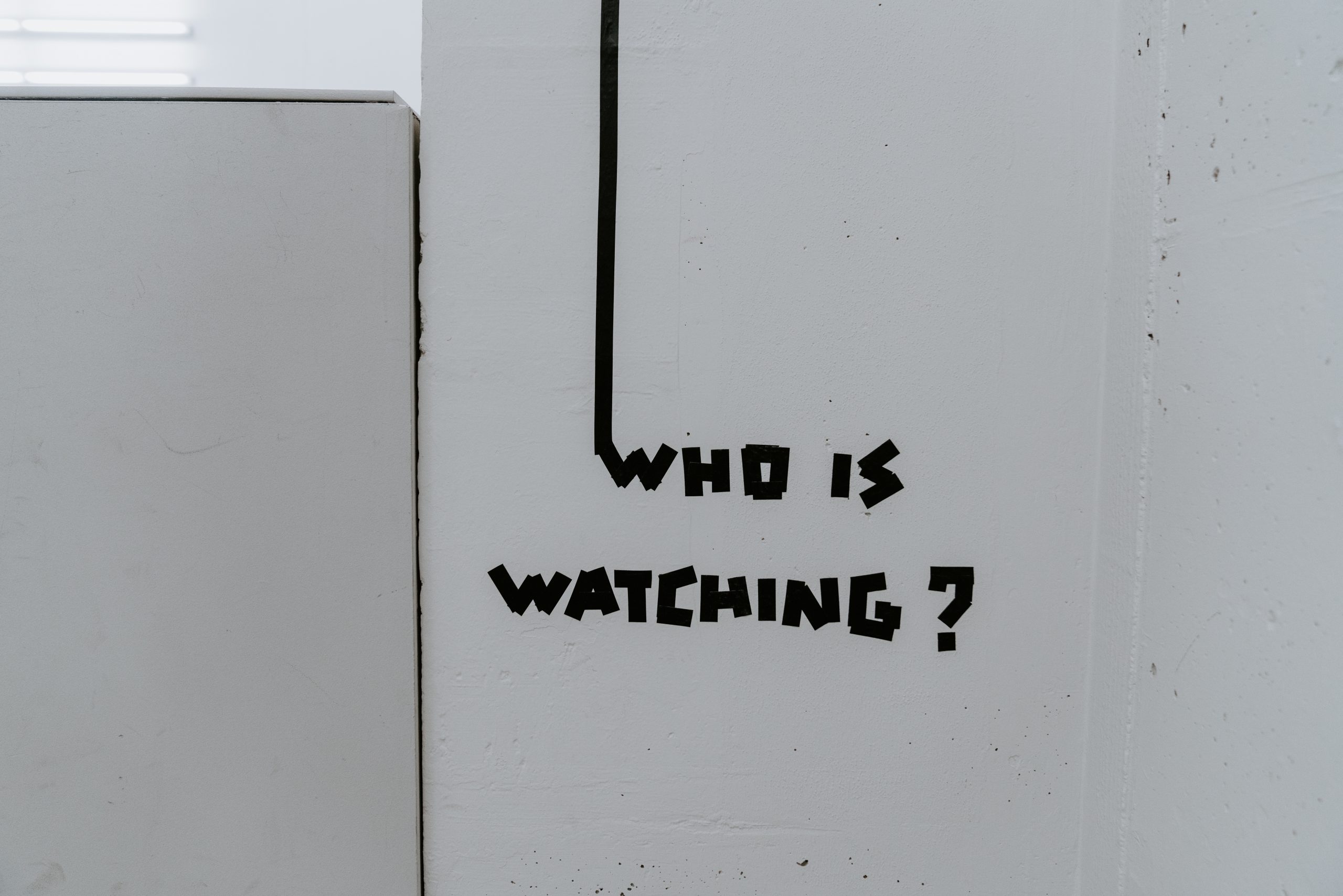In the age of increasing government surveillance and declining privacy, can citizens take back their right to live an unwatched life?
This weekend I had the dubious honor of coming face-to-face with one of the robots being rolled out by the supermarket chain Stop & Shop. The purpose of the tower of cameras and lasers is purportedly to keep an eye on spills and litter in the aisles, as the Boston Globe credulously reported, but presumably it could also watch customers and employees. The encounter got me thinking about the many forms of surveillance takes in this day and age, and how individuals and governments can push back.
One of the most extreme examples of a surveillance state is the province of Kashgar in northwest China. New York Times reporters created this audio-visual essay in an attempt to convey the extent of perpetual, all-consuming surveillance and its restrictive effect on residents. There are cameras, everywhere; and checkpoints, everywhere. Residents are required to install software on devices so the state can monitor their calls and other movements; and they are subject to random, unannounced visits by police and other monitors at any hour of the day or night. As the Times points out, the effect is as much about “intimidation as monitoring.”
Should you worry about facial recognition technology? Technologist Shelly Palmer says we should not be, arguing that “we live in a post-privacy world of our own creation, and there’s no going back.” Essentially, he says, things are already bad, so there’s no reason to try to fix it.
But people aren’t buying what Palmer and others are selling. As the New York Times recently reported, shareholders have taken an activist role in pressuring Amazon to stop selling its facial recognition technology to government agencies, and to conduct an independent investigation into potential violations of civil, human and privacy rights. In many ways, the perpetual surveillance Palmer describes as normal and everyday has raised awareness of how the technology can be abused. Since facial recognition is not-yet-ubiquitous, now is the time for individuals, governments and organizations to take a stand against it.
In another example of this anti-surveillance trend, CNET reports that cities across the United States are passing or considering legislation that would require public approval for new surveillance technologies that police departments are considering purchasing. Voters are asserting their right to decide whether surveillance systems are reasonable and acceptable.
In other news:
Infant mortality rates have dropped in states that expanded Medicaid access, according to a new study from the Georgetown University Center of Health Policy. Read more.
Fully one-half of retirement-age Americans can’t afford to stop working, but there are bills and other proposals on deck that could alleviate the crisis. Learn more.
The daughter of the man who coined the term “regenerative agriculture” wants to rethink the way we treat poop (specifically animal poop) in agriculture. Our food systems and health may depend on it. Read more.



